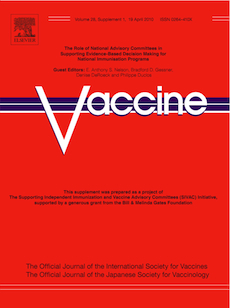HPV prevention among gay and bisexual men
A quadrivalent HPV vaccine, Gardasil, is currently approved for the prevention of anal cancer and anal intraepithelial neoplasia. Given the elevated risk of anal cancer among men who have sex with men (MSM), the Advisory Committee on Immunization Practices prioritized routine vaccine of this population.
After the initial FDA approval of Gardasil for males, there was only a handful of behavioral studies focusing specifically on HPV prevention among MSM. I applied for and was awarded a small internal research award from my department in order to conduct the study for which I reported on in the journal Vaccine. The primary purpose of this study was to evaluate the degree to which self-identified gay and bisexual men were aware of HPV, the health risks associated with HPV infection, as well as their willingness to get vaccinated. We found that many participants, mostly young college students, were aware of HPV and were knowledgeable about certain aspects of HPV infection. However, the majority were not aware that HPV is associated with the risk of certain cancers in men. Furthermore, only a quarter of respondents knew that Gardasil was approved for use in males. Given information on the potential health risks of HPV infection as well as the recent availability of an HPV vaccine, only 36% of men surveyed were likely to be vaccinated. This estimate is much lower than has been reported in previous investigations of HPV vaccine acceptability in MSM and raises some concern about vaccine uptake in this population. We identified attitudes toward HPV vaccination and beliefs about the potential benefits of vaccination as the strongest predictors of an individuals intent to receive the vaccine.
Though the rate of anal cancer is relatively low, it is becoming increasingly common overall and is much more common among MSM. Further research is needed to provided unbiased population-based estimates of HPV vaccine intentions and to develop vaccine promotion campaigns.
